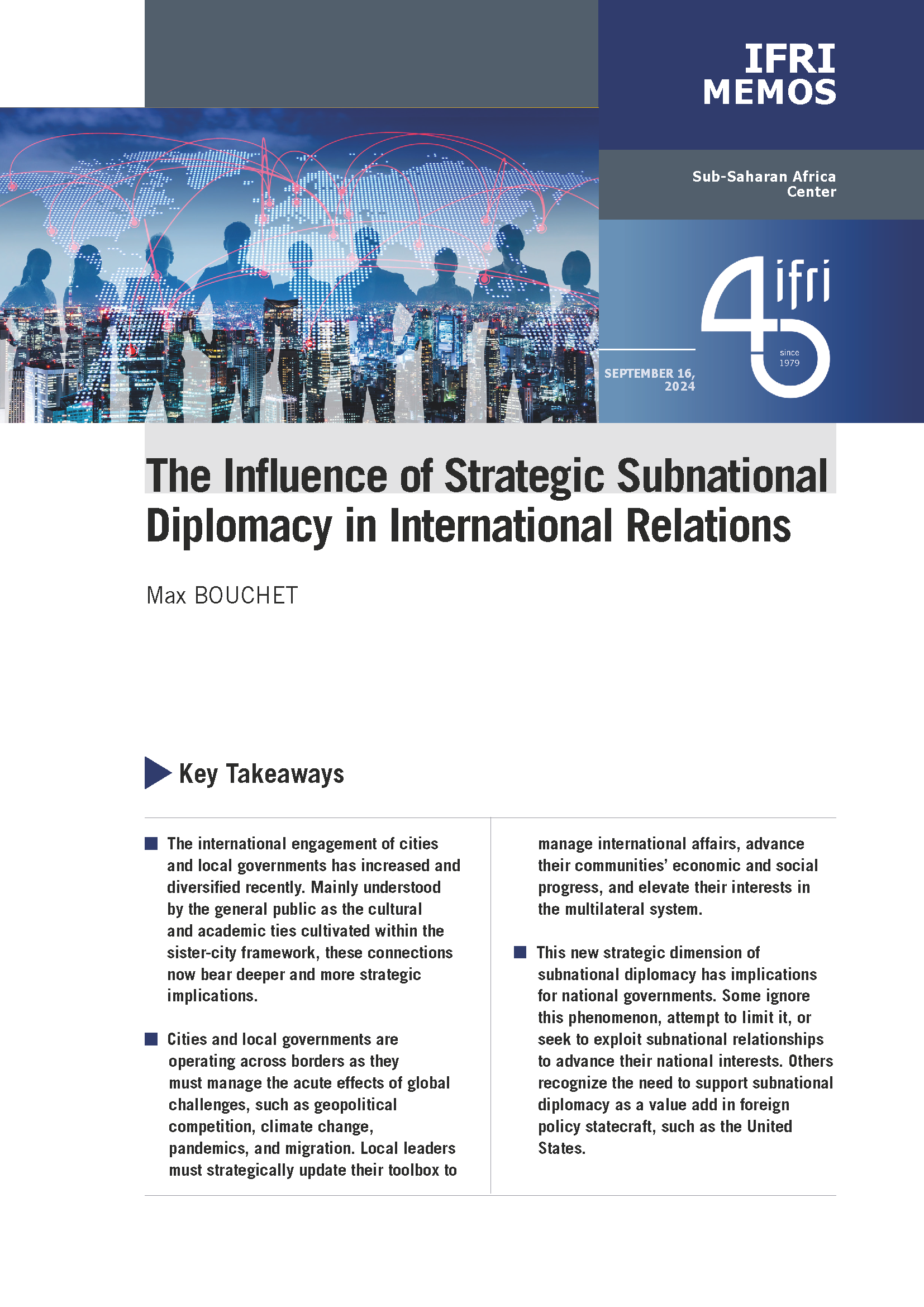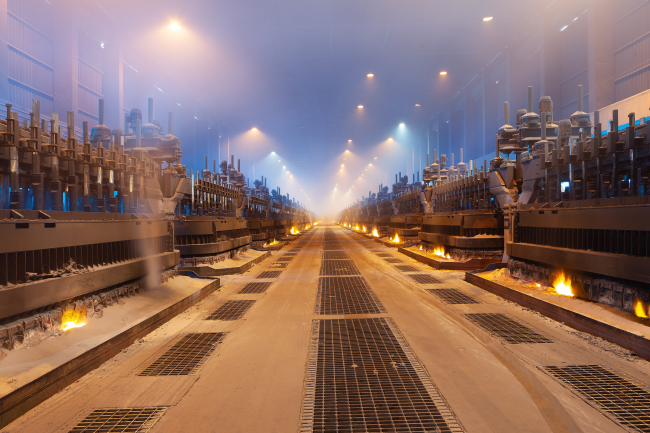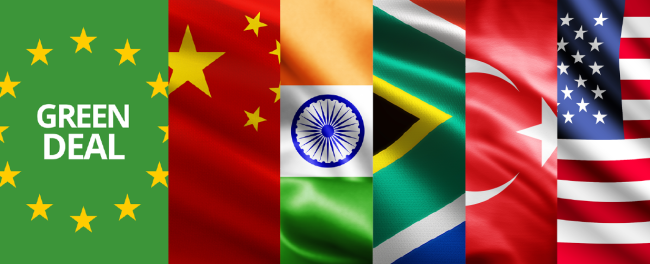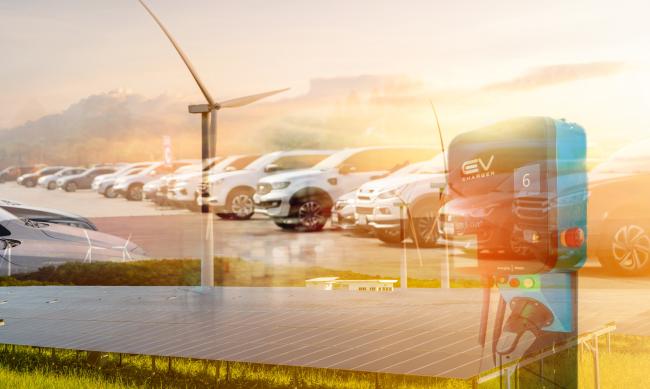Water and Energy in the GCC: Securing Scarce Water in Oil-Rich Countries
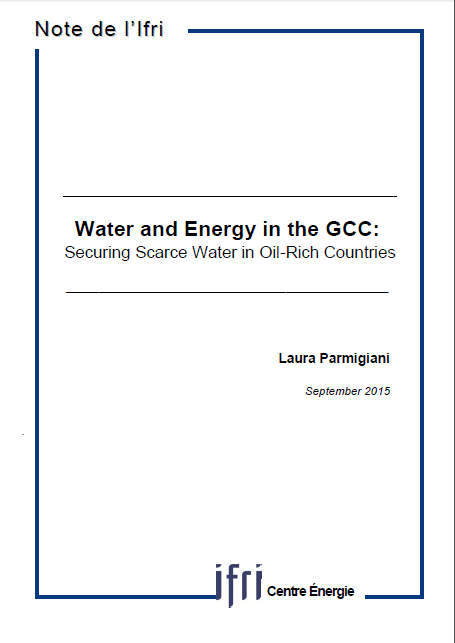
Water scarcity in the Gulf Cooperation Council (GCC) states has traditionally been addressed by finding new ways of producing water. The high costs of desalinated water production are borne by the State through subsidies. As this trend is not environmentally or economically sustainable, new strategies are now giving priority to cost recovery and efficient resource management.
This comparative study will show that in the GCC countries, whose oil or gas reserves are among the largest worldwide, the management of water and energy resources has been relying upon vertically integrated government agencies and companies, with water supply policies fuelled by cheap energy. Wealth redistribution coming from oil and gas revenues has been ensured through low or inexistent water and electricity tariffs.
Groundwater resources, which are the only water sources of the region (there are no surface waters available, except for few dams in Saudi Arabia), are quickly diminishing. Desalination has been developing very fast and now seems to be the only reliable form of supplying water for future requirements. Saudi Arabia alone might need 18 billion cubic meter (bcm) of fresh water per year by 2050 to sustain current consumption patterns. For this reason, huge amounts of energy will be required and the question of the right energy/water balance is at stake. Technological choices in the electricity sector will influence the way water is produced in the future, and vice versa. In particular, water production fuelled by gas or heavy fuel can be linked to power generation, enhancing efficiency but lowering flexibility. Membrane technologies, which require only electricity inputs, allow for a diversified energy and electricity mix but they have smaller critical sizes and therefore produce smaller desalinated water outputs. An overall transformation map will have to be drafted in each country to show the development plans of both electricity generation and water production. This would enable governments and their agencies to assess cross-sector spill-over effects in a timely manner.
The single buyer model has ensured stability and predictability of the water and electricity system and enabled policy makers to forecast precisely water and electricity demand. However, the assumption of simply adding new water or electricity capacity is no longer coherent since cheap, domestic fuel is not as abundantly available as it was in the 1980s. The United Arab Emirates (UAE), Saudi Arabia and Kuwait are already short of natural gas.
New plans have therefore been drafted to fit into an overall strategy of process optimization and reflecting costs, in view of minimizing the impact on the wealth redistribution policy, while starting to raise awareness about the outmost importance of water for the future of the GCC population. If rising tariffs seem the most obvious action to take, other ambitious political decisions have to be addressed, such as the creation of a water law and an inter-GCC water pricing framework.

Also available in:
Regions and themes
ISBN / ISSN
Share
Download the full analysis
This page contains only a summary of our work. If you would like to have access to all the information from our research on the subject, you can download the full version in PDF format.
Water and Energy in the GCC: Securing Scarce Water in Oil-Rich Countries
Related centers and programs
Discover our other research centers and programsFind out more
Discover all our analysesThe Aluminum Value Chain: A Key Component of Europe’s Strategic Autonomy and Carbon Neutrality
The United States of America (US), Canada and the European Union (EU) all now consider aluminum as strategic. This metal is indeed increasingly used, especially for the energy transition, be it for electric vehicles (EVs), electricity grids, wind turbines or solar panels.
The EU Green Deal External Impacts: Views from China, India, South Africa, Türkiye and the United States
Ahead of June 2024 European elections and against the backdrop of growing geopolitical and geoeconomic frictions, if not tensions, between the EU and some of its largest trade partners, not least based on the external impacts of the European Green Deal (EGD), Ifri chose to collect views and analyses from leading experts from China, India, South Africa, Türkiye and the United States of America (US) on how they assess bilateral relations in the field of energy and climate, and what issues and opportunities they envisage going forward.
Electric Vehicles: A Strong and Still Understated Performance
Electric vehicles (EVs) are better for the climate – even in worst-case scenarios. Across its life cycle, a typical European electric car produces less greenhouse gas (GHG) and air pollutants or noise than its petrol or diesel equivalent. Emissions are usually higher in the production phase, but these are more than offset over time by lower emissions in the use phase. According to the European Environment Agency’s report on electric vehicles, life cycle GHG emissions of EVs are about 17-30% lower than those of petrol and diesel cars.
How Can the Green Deal Adapt to a Brutal World?
The European Green Deal has not been planned for the current extraordinarily deteriorated internal and external environment. Russia’s war in Ukraine, higher interest rates, inflation, strained public finances, weakened value chains, and lack of crucial skills pose unprecedented challenges.


